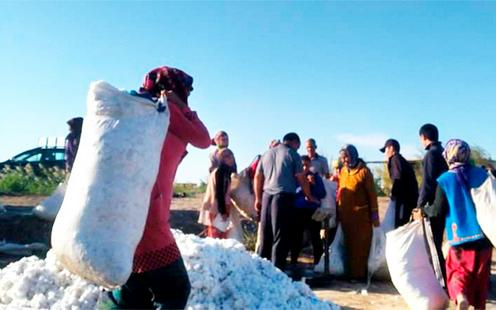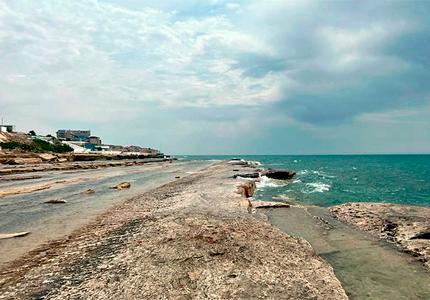Forced labor remains widespread across all cotton-growing regions of Turkmenistan — Balkan, Dashoguz, Lebap, and Mary provinces. This is stated in a report jointly prepared by Turkmen.news, the Turkmen Initiative for Human Rights (TIHR), the Progres Foundation, and the Cotton Campaign coalition.
The document provides an analysis of the current situation and includes recommendations for the Turkmen authorities and international partners. In particular, it notes that:
👉 public sector employees — including technical staff of schools, hospitals, and public utilities — were mass mobilized to pick cotton or forced to pay for hired pickers;
👉 doctors and teachers were exempted from field work only in select institutions;
👉 despite official acknowledgment of the dangers of cotton farming for children and a ban on their involvement, child labor was still used;
👉 the government raised purchase prices for cotton and rates for harvesting, which incentivized voluntary pickers, including children;
👉 the state controls all stages of production — from land allocation and seed supply to harvest campaigns and procurement — creating systemic conditions for coercion, extortion, and corruption;
👉 women are particularly vulnerable, as they represent the majority in low-paid and public sector jobs, limiting their ability to hire pickers and forcing them to participate in the harvest themselves;
👉 Turkmen officials imposed unachievable quotas on farmers, withheld payments for services not rendered, and appropriated portions of the harvest;
👉 despite cooperation with the International Labour Organization (ILO), Turkmen authorities obstructed its efforts by limiting workers' access to meetings and controlling their testimonies.
The report states that Turkmenistan is the 14th-largest cotton producer in the world and fully self-sufficient in raw materials. Its main cotton buyers are Turkey, Italy, and Pakistan, with Turkish companies supplying products to EU countries. Italian and German firms export textile machinery to Turkmenistan.
The report’s authors urge international market players to thoroughly audit their supply chains and exclude Turkmen cotton produced using forced labor until the practice is fully eradicated. They recommend:
▶️ To the Turkmen government — ensure enforcement of national laws, strengthen cooperation with the ILO and international organizations, combat corruption, and protect citizens' rights, including freedom of speech and the formation of independent trade unions;
▶️ To the governments of the EU, USA, and Canada — raise the issue of forced labor in bilateral dialogues with Turkmenistan and tighten controls and legislation on imports of goods;
▶️ To international brands and human rights organizations — intensify monitoring efforts and support the process of eliminating forced labor.
The authors emphasize that only comprehensive reforms and sustained international pressure can lead to real improvements and protect the rights of workers in Turkmenistan’s cotton industry.










